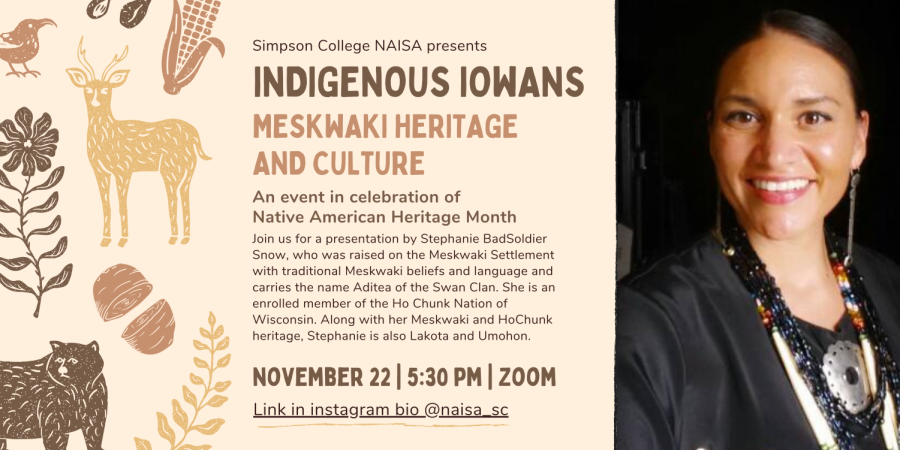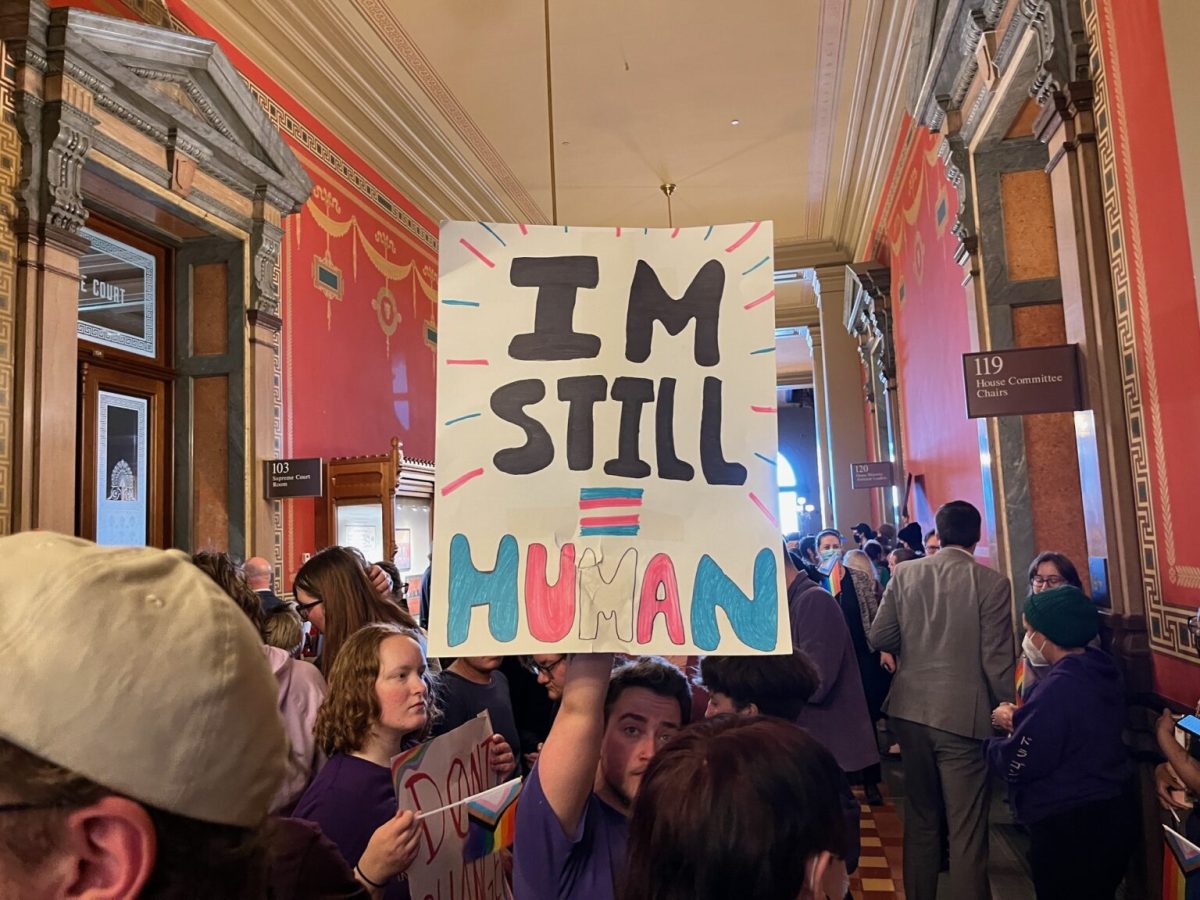Indigenous Iowans: Meskwaki culture and heritage
November 23, 2021
Stephanie BadSoldier Snow, in partnership with NAISA, spoke about Indigenous Iowans for Native American History Month via Zoom on Nov. 22.
Snow was raised on the Meskwaki Settlement with traditional Meskwaki beliefs and language. She is also an enrolled member of the Ho-Chunk Nation of Wisconsin.
The Meskwaki are the only current resident tribe in the state of Iowa. Snow emphasized how the Meskwaki have existed in the United States for thousands of years. Meskwaki people have an intimate tie to the earth, their origin story saying their people first came from red clay.
“We believe that our bodies were created from this earth so, therefore, it’s borrowed, and when we die, we will go back to it,” Snow said. “…Something else will eat from you, something else will grow from you. There’s a deep respect for the land and everything in existence because of that.”
There are eight clans within the Meskwaki Tribe: thunder, bear, eagle, fox, wolf, fish, beaver and swan. Snow belongs to the Swan Clan. She carries the name Aditea, which means “going beyond.”
Snow says archaeological evidence such as pots specific to the Meskwaki were found in Northern Mexico, suggesting them to have origins there.
“You’re not going to hear that from everyone,” Snow said. “…There are not a lot of people who know that or who will claim that. For me, that’s really important, to tell the truth of our history.”
The Meskwaki were firmly established in Iowa by 1800 but lost all their land through a series of treaty cessions in 1845. Most were removed to reservations in Kansas and Oklahoma, but some remained hidden in Iowa. A decade later, in 1856, the Iowa legislature created a law permitting the Meskwaki to stay in Iowa.
In 1857, the Meskwaki purchased the first 80 acres of their current settlement in Tama County. Over the years, the tribe continued to buy land and currently owns more than 8,100 acres in Tama, Marshall and Palo Alto County.
The Meskwaki are the only tribe in the United States that owns their land through purchase. The settlement is not considered a reservation as it is privately purchased property.
“We were watching what others were doing, and we knew things were not going to change,” Snow said. “This was a change that was happening to us, being imposed on us, and that we would have to learn how to live in it.”
Snow describes their land as being sacred, as many were buried there in the past. Traditionally, the deceased are taken to a place where they can be “elevated,” but during a smallpox outbreak, this was not possible.
“Our people were dying so fast that they had to bury our people right there where they were dying,” Snow said.
As a result of colonization, Meskwaki ceremonies became much more private and still are to this day. Snow discusses the implications of colonization on Indigenous people to this day.
“Colonization continues to be an issue for us. We’ve lost a lot of customs because of this, and it has changed our lifestyle,” Snow said. “We were forced into what are essentially concentration camps, and that’s our reservation system. For a long time, people were not even allowed to leave their reservations or leave the fort where they might’ve posted people and imprisoned them as well.”
Today, there are 1,450 enrolled tribal members of the Meskwaki Nation.







